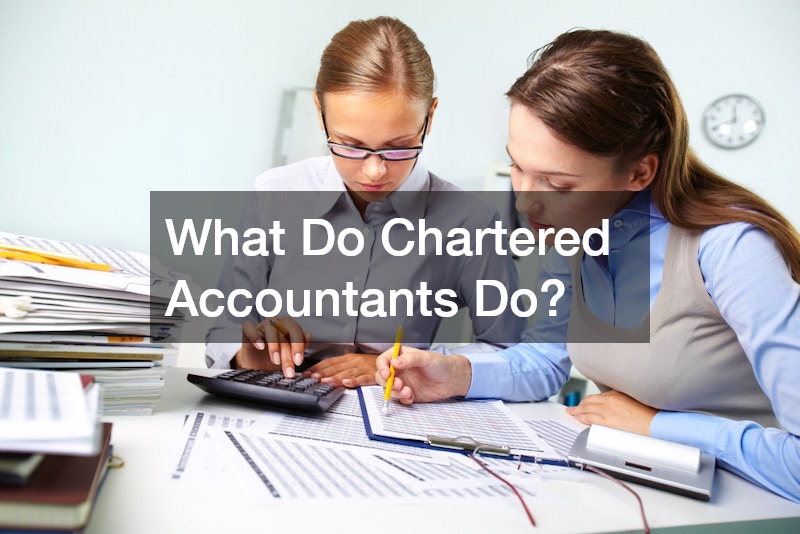
Chartered accountants play a crucial role in the financial world, providing expertise in areas such as accounting, auditing, taxation, and business advisory. Recognized for their rigorous training and professional qualifications, chartered accountants are trusted advisors who help businesses, organizations, and individuals manage their finances effectively. Understanding their responsibilities and areas of expertise can highlight why they are integral to modern financial management.
Understanding the Role of Chartered Accountants
Chartered accountants are certified professionals who have completed extensive education and training in accounting and financial management. Unlike general accountants, they hold advanced qualifications and are members of recognized professional bodies such as the Institute of Chartered Accountants of England and Wales (ICAEW) or similar organizations worldwide. Their designation signifies a high level of expertise and adherence to ethical standards.
The primary duties of chartered accountants include ensuring accurate financial reporting, maintaining compliance with regulatory standards, and offering strategic financial advice. Their work spans a variety of sectors, including corporate finance, public accounting, government, and non-profit organizations.
Key Responsibilities of Chartered Accountants
Chartered accountants perform a wide range of tasks depending on their area of specialization. Some of their core responsibilities include:
1. Financial Reporting: Chartered accountants ensure that financial records are accurate and comply with applicable laws and regulations. They prepare key financial statements, such as income statements, balance sheets, and cash flow reports, which provide a clear picture of an organization’s financial health.
2. Auditing and Assurance: Auditing is a critical function of chartered accountants. They conduct independent reviews of financial records to verify accuracy and identify potential risks. This process ensures transparency and helps organizations maintain credibility with stakeholders such as investors and regulatory bodies.
3. Taxation: Tax planning and compliance are among the most sought-after services offered by chartered accountants. They assist individuals and businesses in understanding and minimizing tax liabilities, ensuring compliance with tax laws, and preparing accurate tax returns. Their expertise in navigating complex tax regulations helps clients avoid penalties and maximize savings.
4. Business Advisory: Chartered accountants often serve as strategic advisors, helping businesses make informed financial decisions. They analyze financial data, forecast future trends, and provide recommendations for improving profitability and operational efficiency. This includes advising on mergers, acquisitions, and investment opportunities.
5. Risk Management: Identifying and mitigating financial risks is another key responsibility of chartered accountants. They help organizations develop robust risk management strategies to safeguard assets and ensure long-term stability. This involves assessing market conditions, evaluating investment risks, and creating contingency plans.
6. Forensic Accounting: Chartered accountants with expertise in forensic accounting investigate financial discrepancies, fraud, and embezzlement. Their work often involves collaborating with law enforcement agencies and legal teams to provide evidence and expert testimony in court cases.
Areas of Specialization for Chartered Accountants
Chartered accountants can specialize in various fields depending on their interests and career goals. Some common areas of specialization include:
Corporate Accounting: Corporate chartered accountants focus on managing the finances of companies. They oversee budgeting, financial analysis, and reporting, ensuring businesses remain profitable and compliant with regulations.
Public Practice: Chartered accountants in public practice work with multiple clients, providing auditing, tax, and advisory services. They often work for accounting firms or run their own practices.
Management Accounting: Management accountants focus on internal financial processes, helping organizations plan and control their finances. They are instrumental in cost management, budgeting, and financial forecasting.
Taxation: Specialists in taxation provide in-depth guidance on local and international tax laws. They assist with tax planning, compliance, and strategies to minimize liabilities.
Forensic Accounting: Forensic chartered accountants specialize in investigating financial fraud and disputes. They analyze financial records to uncover irregularities and provide expert opinions in legal proceedings.
Non-Profit Accounting: Chartered accountants in this sector focus on managing the finances of non-profit organizations, ensuring compliance with donor regulations and efficient use of funds.
Skills and Qualities of Chartered Accountants
Chartered accountants possess a unique set of skills and qualities that make them valuable professionals in the financial sector:
- Analytical Thinking: Their ability to analyze complex financial data allows them to provide accurate insights and recommendations.
- Attention to Detail: Precision is critical in accounting, and chartered accountants excel at identifying discrepancies in financial records.
- Ethical Standards: Adhering to professional ethics ensures they maintain trust and integrity in their work.
- Communication Skills: Chartered accountants must explain financial concepts clearly to clients and stakeholders, making strong communication skills essential.
- Problem-Solving Abilities: Whether it’s resolving tax issues or mitigating financial risks, their problem-solving skills are invaluable.
Importance of Chartered Accountants in Modern Businesses
Chartered accountants are indispensable in today’s dynamic business environment. Their expertise helps organizations navigate complex financial landscapes, adapt to regulatory changes, and achieve long-term growth. They provide businesses with the tools to make data-driven decisions, optimize operations, and remain competitive in their industries.
For individuals, chartered accountants offer guidance on tax planning, investment strategies, and estate management, ensuring financial stability and growth. Their services are particularly valuable during life events such as starting a business, buying property, or planning for retirement.
Chartered accountants are highly skilled professionals who bring a wealth of knowledge and expertise to the financial world. Their ability to handle diverse tasks—from financial reporting and auditing to tax planning and business advisory—makes them indispensable in both corporate and personal finance. Whether you’re a business owner seeking strategic guidance or an individual looking to optimize your tax situation, working with chartered accountants ensures your financial affairs are in capable hands. Their professionalism, dedication, and insight are vital for achieving financial success in an ever-changing economic landscape.
.




